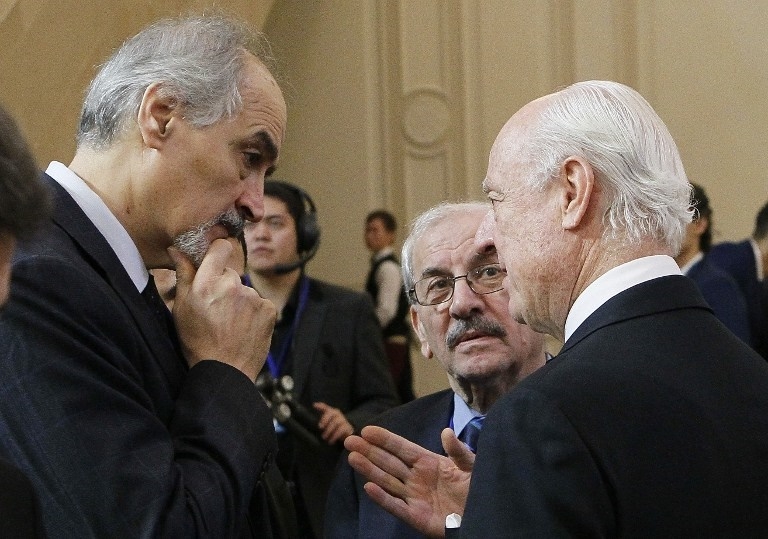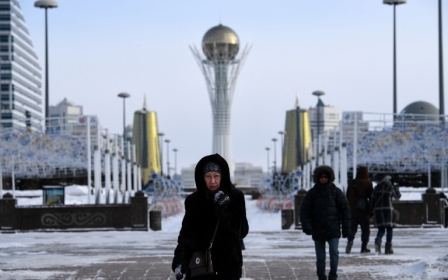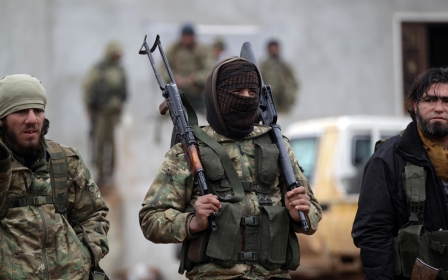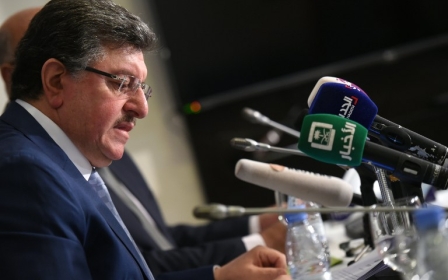Russia, Turkey and Iran agree system to monitor Syria ceasefire

Turkey, Russia and Iran have reached agreement on forming a three-party mechanism to monitor ceasefire violations in Syria, the states said on Tuesday as talks came to a close in Astana, Kazakhstan.
In a joint statement, the states said the agreement would prevent any provocations and determine exactly how the ceasefire will work.
Concluding the Syria talks in Astana, Tehran, Moscow and Ankara also said they supported the willingness of the armed opposition groups to participate in the next round of negotiations to be held in Geneva on 8 February and the implementation of "roadmap for peace" outlined in UN Security Council resolution 2254.
UN Special Representative for Syria Staffan de Mistura said that the Syrian peace process should remain guided by the United Nations and continue in Geneva.
"We (the UN) are the main player in regards to the political process," he said, praising the Astana talks' role in reaching an agreement to consolidate a ceasefire.
'Birth' of Astana process
The head of the Russian delegation at the Astana talks said the negotiations had been positive and that he believed a new process had been born to kickstart negotiations between warring Syrian parties.
"Despite a lot of time spent on agreeing the communique, we have managed to give birth to the Astana process," Alexander Lavrentyev told reporters.
He said Russia, Turkey and Iran, as guarantors, of the agreement to set up a ceasefire mechanism, would now work closely to implement it. However, he sought to play down the impact the talks would have on a U.N. led political process.
"There will be some speculation that Astana is considered as a substitute of the Geneva process. That's not true - Astana (talks) is a complement to Geneva," he said, adding though that other groups could join the Astana process.
Divisions remain
Syrian rebels are unhappy with a communique establishing a ceasefire mechanism between Russia, Iran and Turkey, an opposition delegate told Reuters.
"Iran is spearheading in a number of areas military offensives, leading to forcible displacements of thousands of Syrians and causing bloodletting. This communique legitimises this role," said the delegate, who declined to be identified.
A second delegate, who said the opposition would not endorse the communique, said Turkey had been weak in the negotiations and unable to assert the rebel position.
The head of the Syrian opposition delegation to talks in Astana, Mohammed Alloush, also said he had reservations about the final communique, saying the rebels had submitted a separate ceasefire proposal.
"The Russians have moved from a stage of being a party in the fighting and are now exerting efforts to become a guarantor. They are finding a lot of obstacles from (Lebanon's Shia) Hezbollah forces, Iran and the regime," he told reporters after the talks in the Kazakh capital.
He said he expected Russia to respond within a week to the opposition's ceasefire proposal and that rebels would never allow Iran, which backs Syrian government forces, to have a say in Syria's future.
On the other side, the Assad delegation viewed the Astana talks as a "success", chief negotiator Bashar Jaafari said on Tuesday, expressing support for a joint statement by Iran, Turkey and Russia.
"Finally we have a consensual paper agreed upon by everybody," he told reporters, referring to the joint statement.
Russia and Turkey move closer together
Russian Foreign Minister Sergei Lavrov and his Turkish counterpart Mevlut Cavusoglu also discussed the Astana peace talks by phone on Tuesday, the Russian Foreign Ministry said.
Lavrov and Cavusoglu "underlined the importance of establishing direct contact between the Syrian government and representatives of the opposition," the ministry said in a statement.
The rebels on Monday backed out of face-to-face negotiations with Damascus over the government's continued bombardment and attacks on a flashpoint outside the capital Damascus.
The armed opposition has said that the Astana talks should aim to bolster a frail truce brokered by Moscow and Ankara last month but the government has called for a political solution to the conflict and for rebels to lay down their arms in exchange for an amnesty.
The first day of the talks yielded no apparent breakthrough.
More than 310,000 people have been killed and more than half of Syria's population displaced since the conflict erupted in 2011.
The meeting in Astana comes at a time when Turkey, which backs the rebels, and Russia, which supports Syrian President Bashar al-Assad, each want to disentangle themselves from the fighting.
That has led them into an ad-hoc alliance that some believe represents the best chance for progress towards a peace deal, especially with the United States distracted by domestic issues following the election of Donald Trump.
New MEE newsletter: Jerusalem Dispatch
Sign up to get the latest insights and analysis on Israel-Palestine, alongside Turkey Unpacked and other MEE newsletters
Middle East Eye delivers independent and unrivalled coverage and analysis of the Middle East, North Africa and beyond. To learn more about republishing this content and the associated fees, please fill out this form. More about MEE can be found here.




